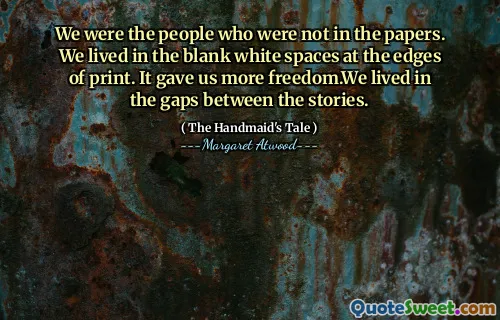She's in her usual Martha's dress, which is dull green, like a surgeon's gown of the time before. The dress is much like mine in shape, long and concealing, but with a bib apron over it and without the white wings and the veil. She puts on the veil to go outside, but nobody much cares who sees the face of a Martha.
In "The Handmaid's Tale," the character describes the attire of a Martha, a servant in the dystopian society. The dull green dress, reminiscent of a surgeon's gown from the past, symbolizes the suppressed individuality and roles assigned to women in this oppressive regime. The dress is similar to the narrator's outfit, indicating a shared experience among women, yet it lacks the decorative elements that would suggest personal identity or freedom.
As the Martha prepares to venture outside, she dons a veil, which signifies the expectation of anonymity and conformity in her role. The narrator reflects on how society views the Marthas, highlighting that their faces are not of concern to others, underscoring the dehumanization prevalent within this world. This moment emphasizes the restricted lives of women, stripped of their identities and reduced to their designated functions.






